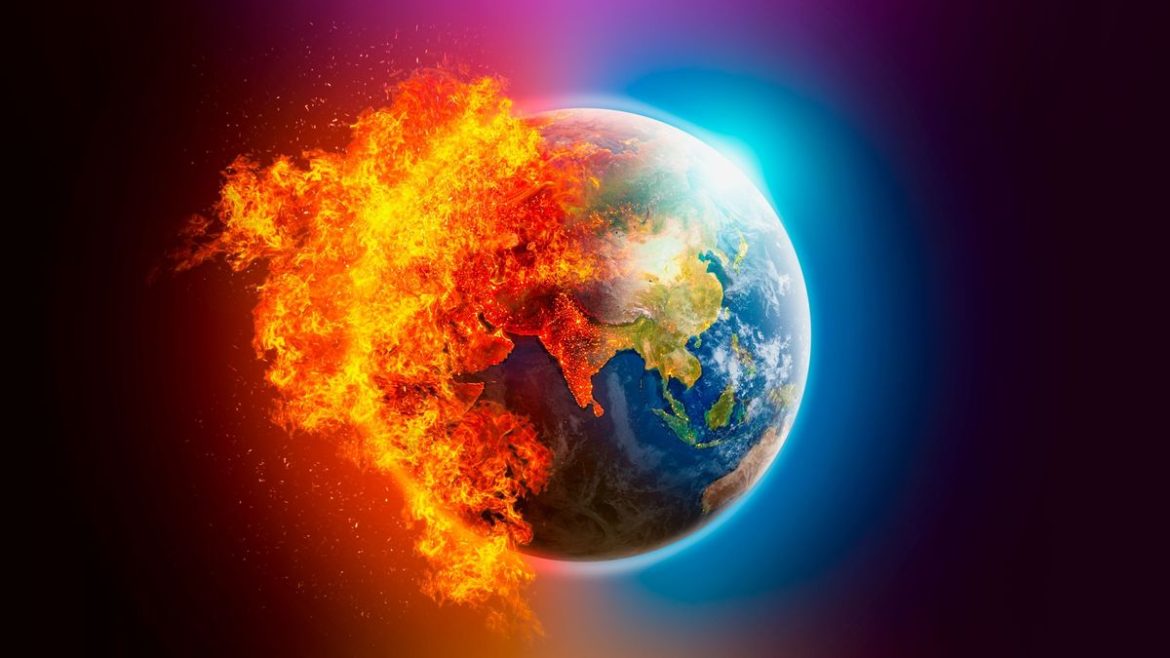In the 21st century, the climate-health nexus is one of the most significant challenges and fundamental issues that threaten multiple aspects of human life, including health conditions and social and economic crises. Because climate change is not solely dealt with by the increase in temperature or melting glaciers, it also addresses related issues. The experts have described the human age of crisis, where the influx of climate change has been deliberately causing profound health consequences. A devastating flood and deadly heatwave conditions are causing diseases that are challenging to treat.
Heatwaves: Silent waves of death
Heatwaves are one of the deadliest indicators of the climate-health nexus. The World Health Organization has statistically analyzed that between 1998 and 2017, 166,000 people were killed, and the death toll has still been increasing in recent years. The heatwaves cause premature deaths due to heat stroke, dehydration, and excessive contraction with sun – children and older adults mostly become targets of this fatality.
Floods: Sudden Attack on the World
Floods are a crucial consideration in terms of health, because as they arrive, they wash away everything within seconds – crops, homes, and buildings. Families displaced from their native areas, floods created unhygienic situations that led to various diseases such as malaria, cholera, and diarrhea. In 2022, thousands of pregnant women gave birth in an unsafe situation without proper medical care, and these disastrous climate events indicate that they are not merely an environmental cause but also severely exacerbate medical emergencies, leading to the fragility of health issues.
Food and Water Security: A Global Threat
Rising temperatures are not the foremost challenges posed by climate change; instead, it is also equally impacting food and water security, which is considered a significant global threat. Floods, rise in temperatures, and droughts not only reducing agricultural yields but also create difficulties in accessing healthy food. These challenges also cause micronutrient deficiencies among children and the elderly. Moreover, droughts and excessive floods contaminate and dry up water supplies, creating conditions that foster germs and cause fatal diseases such as hepatitis, waterborne diseases, and cholera. According to the WHO, climate-related concerns can be mitigated when people have proper access to healthy food, which strengthens their bodies and reduces the risk of fatal and incurable diseases. Therefore, it is vital to ensure food and water security, as these insecurities are another strong link between human health, survival, and environmental crisis.
Psychological Challenges and Impacts
Climate change does not just physically affect people, but it also has a greater impact on mental health. When homes and hardships of people sink in and fade away, or the loss of loved ones and jobs, these traumatic experiences eventually drive them into mental stress, depression, and trauma. Moreover, young people of the 21st century are constantly complaining about “climate anxiety.” Climate anxiety is a form of stress that deals with an imagined uncertainty about the future and the stability crisis of the planet and the environment. These psychological challenges create hurdles in everyday life, leading to the loss of social relationships and a decline in the productive quality of life. However, in a disastrous situation, mental health is often overlooked and compromised. Thus, recognizing these unseen struggles and challenges, it is essential to build resilience, as developing flexibility and pliability in life not only helps individuals survive physically but also psychologically strengthens them to deal with challenges.
Conclusion
The climate-health nexus suggests that humans and climate conditions are inextricably linked, as climate change that deviates from normal patterns not only impacts physical health but also contributes to the emergence of various fatal diseases. Moreover, it also disturbs the mental state of people through depression, acute anxiety and fear. Therefore, higher authorities, policymakers, healthcare experts, and communities must work together to address environmental conditions that contribute to severe health crises. The ecological needs should be properly ensured by protecting plants, as well as removing pollution and debris from streets, because these measures are not solely for environmental protection, but also for public health necessity.
(The author is : Media Scholar, can be reached at: [email protected])


